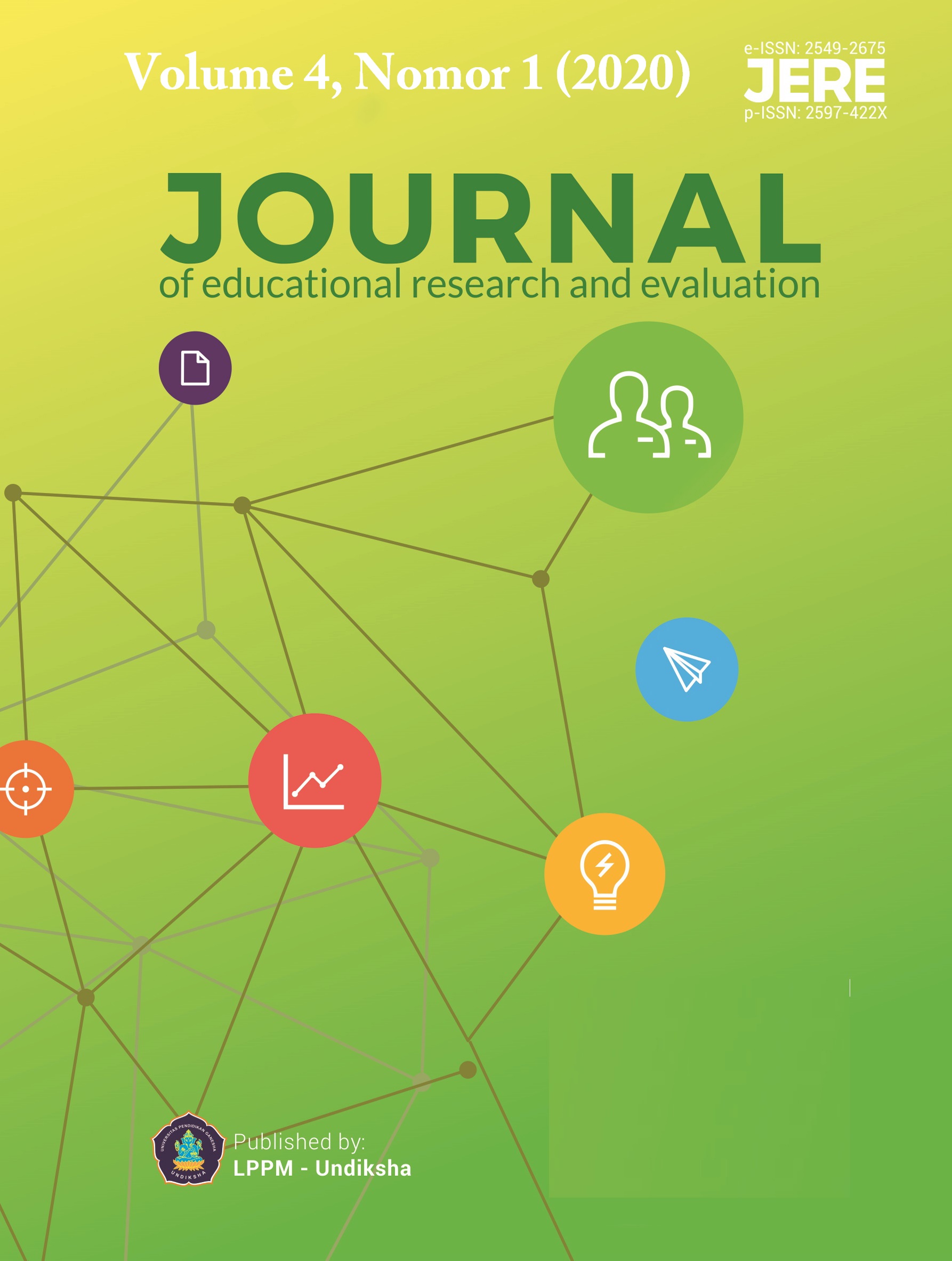Ikigai as Student High Order Literacy Skills Intrinsic Motivation Learning Template
DOI:
https://doi.org/10.23887/jere.v4i1.22449Keywords:
High Order Literacy Skills, Intrinsic Motivation, IkigaiAbstract
This study aims to develop instructional design that include Ikigai concept to improve students High Order Literacy Skills competence in accordance to standard needed in industrial 4.0 era. Product development is done by Research and Development (R&D) Method with Akker procedure scheme. On the field of Informatic Education, our main concern is student that can be described as skilled programmer often have poor communication or collaboration skills with societies and vice-versa, student with good social skills often has poor technical skill. However, when the students have clear life-goal, those lack of social or technical skills are gradually improved. In this study, we cultivate student's intrinsic motivation by utilize Ikigai concept on teaching and learning activities. The result show that when the students have clear life-goal, those lack of social or technical skills are gradually improved. Furthermore, by properly using Ikigai as motivation template, it could be the most important factor that help eastern culture people achieve self-actualization.References
Parks, M. (1998, September 13). Reading: The first skill. Los Angeles Times. From http://articles.latimes.com/1998/sep/13/news/mn-22400.
Liem, Inggriani. (2018). Computational Thinking. Material on bebras workshop at Binus University.
Ornstein, Allan.C.,Daniel U.Levine.,Gerald L. Gutek.,David E.Vocke. (2011). Foundation of Education. Wadsworth: Cengage Learning, USA.
McKnight, P. E., & Kashdan, T. B. (2009). Purpose in life as a system that creates and sustains health and well-being: An integrative, testable theory. Review of General Psychology, 13(3), 242-251.
Keyes, C. L. M., Shmotkin, D., & Ryff, C. D. (2002). Optimizing well-being: The empirical encounter of two traditions. Journal of Personality and Social Psychology, 82(6), 1007-1022.
Locke, E. A., & Latham, G. P. (2002). Building a practically useful theory of goal setting and task motivation: A 35-year odyssey. American Psychologist, 57, 705-717.
Locke, E. A., & Latham, G. P. (2006). New directions in goal-setting theory. Current Directions in Psychological Science, 15, 265-268
Gewati, M. (2016, Agustus 29). Minat baca Indonesia ada di urutan ke-60 dunia. Kompas. Retrieved from: Https://edukasi.kompas.com/read/2016/08/29/7175131/minat.baca.indonesia.ada.di.urutan.60.dunia
Mukhijab. (2017, November 28). Daya konsentrasi generasi milenial hanya 18 menit. Pikiran Rakyat. Retrieved from http://www.pikiran-rakyat.com/nasional/2017/11/28/daya-konsentrasi-generasi-milenial-hanya-18-menit-414758
Hikmawan, Rizki et al. (2019). Development of Ikigai Instructional Method to Cultivate Computational Thinking of Millennial Generations. J. Phys.: Conf. Ser. 1318 012007. https://doi.org/10.1088/1742-6596/1318/1/012007
Jones, Elizabeth & Richard Voorhees. (2002). Defining and assessing learning: exploring competency-based initiatives. National Center for Education Statistics.
Dick, Walter & Lou Carey. (2001). The Systematic Design of Instruction. Accessed 17 Jan 2018: http://www.hastudio.us/.
Gagne, Robert. M,.Walter, W., Katharine, G,.Keller, J. (2015). Principles of Instructional Design. Belmont: Wadsworth/ Thompson Learning.
Akker, Jan Van den. (1999). Design Approaches and Tools in Education and Training. Publication: Design Approaches and Tools in Education and Training, pages. 1-14.
Schippers, Michaela. (2017). Ikigai: Reflection on life goals optimizes performance and happiness. Journal of Economic Literature. Rotterdam: Erasmus Research Institute of Management.
Downloads
Published
How to Cite
Issue
Section
License
Authors who publish with the Journal of Evaluation and Research in Education (JERE) agree to the following terms:
- Authors retain copyright and grant the journal the right of first publication with the work simultaneously licensed under a Creative Commons Attribution License (CC BY-SA 4.0) that allows others to share the work with an acknowledgment of the work's authorship and initial publication in this journal.
- Authors are able to enter into separate, additional contractual arrangements for the non-exclusive distribution of the journal's published version of the work (e.g., post it to an institutional repository or publish it in a book), with an acknowledgment of its initial publication in this journal.
- Authors are permitted and encouraged to post their work online (e.g., in institutional repositories or on their website) prior to and during the submission process, as it can lead to productive exchanges, as well as earlier and greater citation of published work. (See The Effect of Open Access)











